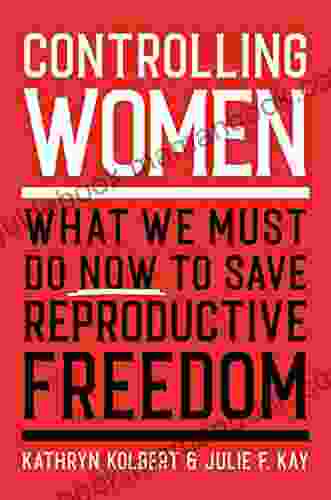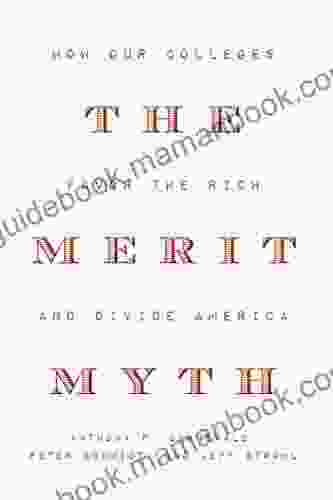How Our Colleges Favor the Rich and Divide America

American higher education is often hailed as a beacon of opportunity, where students from all backgrounds can pursue their dreams. However, a growing body of research suggests that this ideal is far from reality. In fact, our colleges and universities are increasingly favoring the wealthy and exacerbating social inequality.
4.5 out of 5
| Language | : | English |
| File size | : | 947 KB |
| Text-to-Speech | : | Enabled |
| Screen Reader | : | Supported |
| Enhanced typesetting | : | Enabled |
| Word Wise | : | Enabled |
| Print length | : | 308 pages |
The Wealth Gap in College Admissions
One of the most striking examples of bias in college admissions is the wealth gap. Studies have consistently shown that students from wealthy families are more likely to be admitted to top colleges and universities than students from poor families, even when they have similar academic credentials. This gap is largely due to the fact that wealthy families have access to better resources, such as private tutors, test prep courses, and college counselors, which can help them improve their children's chances of getting into a selective school.
In addition to the wealth gap, there are a number of other factors that can bias college admissions in favor of the wealthy, including:
- Legacy preference: Many colleges and universities give preference to children of alumni, who are disproportionately likely to be wealthy.
- Race-based affirmative action: While affirmative action programs are designed to increase the diversity of college campuses, they can also benefit students from wealthy families who happen to be members of underrepresented minority groups.
- Financial aid: Although need-based financial aid programs can help students from low-income families attend college, they are often not enough to cover the full cost of attendance. This can make it difficult for students from poor families to compete with students from wealthy families who can afford to pay for college out of pocket.
The Consequences of a Wealthy Elite
The wealth gap in college admissions has a number of negative consequences for society. First, it limits the opportunities of students from poor families, who are less likely to have the resources to succeed in college. This can lead to perpetuating cycles of poverty and inequality.
Second, the wealth gap in college admissions contributes to the creation of a wealthy elite. Students from wealthy families are more likely to attend top colleges and universities, which gives them a significant advantage in the job market. This can lead to a concentration of power and wealth in the hands of a few privileged individuals.
Third, the wealth gap in college admissions undermines the public's trust in higher education. When people see that wealthy students are getting an unfair advantage, they may start to question the value of a college degree. This can lead to a decline in public support for higher education, which would be devastating for our nation.
Solutions for a More Equitable System
There are a number of things we can do to address the wealth gap in college admissions and create a more equitable system. First, we need to increase access to high-quality education for all students, regardless of their socioeconomic background. This means investing in early childhood education, K-12 public schools, and need-based financial aid programs.
Second, we need to reform college admissions policies to reduce the advantages that wealthy students enjoy. This includes eliminating legacy preference, reforming affirmative action programs, and making financial aid more generous. We also need to provide more support services for students from low-income families, such as tutoring, mentoring, and counseling.
Finally, we need to change the way we think about college. We need to recognize that a college degree is not just a private good, but also a public good. By investing in higher education, we are investing in the future of our nation. We need to make sure that everyone has the opportunity to succeed in college, regardless of their socioeconomic background.
The wealth gap in college admissions is a serious problem that is perpetuating social inequality and undermining the public's trust in higher education. We need to take action to address this problem and create a more equitable system. By investing in early childhood education, K-12 public schools, and need-based financial aid programs, we can increase access to high-quality education for all students. We can also reform college admissions policies to reduce the advantages that wealthy students enjoy and provide more support services for students from low-income families. By working together, we can build a more equitable and just system of higher education.
4.5 out of 5
| Language | : | English |
| File size | : | 947 KB |
| Text-to-Speech | : | Enabled |
| Screen Reader | : | Supported |
| Enhanced typesetting | : | Enabled |
| Word Wise | : | Enabled |
| Print length | : | 308 pages |
Do you want to contribute by writing guest posts on this blog?
Please contact us and send us a resume of previous articles that you have written.
 Top Book
Top Book Novel
Novel Fiction
Fiction Nonfiction
Nonfiction Literature
Literature Paperback
Paperback Hardcover
Hardcover E-book
E-book Audiobook
Audiobook Bestseller
Bestseller Classic
Classic Mystery
Mystery Thriller
Thriller Romance
Romance Fantasy
Fantasy Science Fiction
Science Fiction Biography
Biography Memoir
Memoir Autobiography
Autobiography Poetry
Poetry Drama
Drama Historical Fiction
Historical Fiction Self-help
Self-help Young Adult
Young Adult Childrens Books
Childrens Books Graphic Novel
Graphic Novel Anthology
Anthology Series
Series Encyclopedia
Encyclopedia Reference
Reference Guidebook
Guidebook Textbook
Textbook Workbook
Workbook Journal
Journal Diary
Diary Manuscript
Manuscript Folio
Folio Pulp Fiction
Pulp Fiction Short Stories
Short Stories Fairy Tales
Fairy Tales Fables
Fables Mythology
Mythology Philosophy
Philosophy Religion
Religion Spirituality
Spirituality Essays
Essays Critique
Critique Commentary
Commentary Glossary
Glossary Bibliography
Bibliography Index
Index Table of Contents
Table of Contents Preface
Preface Introduction
Introduction Foreword
Foreword Afterword
Afterword Appendices
Appendices Annotations
Annotations Footnotes
Footnotes Epilogue
Epilogue Prologue
Prologue Heinz G Konsalik
Heinz G Konsalik Alexander C Loney
Alexander C Loney Kevin Hardman
Kevin Hardman Leeanna Morgan
Leeanna Morgan Rix Quinn
Rix Quinn Patricia Burch
Patricia Burch Nicole Snow
Nicole Snow Dolly Alderton
Dolly Alderton Shondra M Quarles
Shondra M Quarles James Fenimore Cooper
James Fenimore Cooper Daniel Kucan
Daniel Kucan Alfonso Segura
Alfonso Segura Karlo Mila
Karlo Mila Joanne Demaio
Joanne Demaio The Medieval Murderers
The Medieval Murderers Maths Solutions
Maths Solutions Nir Eyal
Nir Eyal Alexander Trocchi
Alexander Trocchi Pam Backlund
Pam Backlund Blake C Clayton
Blake C Clayton
Light bulbAdvertise smarter! Our strategic ad space ensures maximum exposure. Reserve your spot today!

 Marcus BellLa Celestina: The Tragicomedy of Calisto and Melibea - A Journey into Love,...
Marcus BellLa Celestina: The Tragicomedy of Calisto and Melibea - A Journey into Love,...
 Philip BellTeaching What You’re Not: The Importance of Diversity, Inclusion, and Equity...
Philip BellTeaching What You’re Not: The Importance of Diversity, Inclusion, and Equity... Gage HayesFollow ·19.6k
Gage HayesFollow ·19.6k Clark BellFollow ·5.4k
Clark BellFollow ·5.4k Blake BellFollow ·2.9k
Blake BellFollow ·2.9k Lee SimmonsFollow ·9.6k
Lee SimmonsFollow ·9.6k Galen PowellFollow ·14.1k
Galen PowellFollow ·14.1k Winston HayesFollow ·13.8k
Winston HayesFollow ·13.8k Colt SimmonsFollow ·10.6k
Colt SimmonsFollow ·10.6k Jacob HayesFollow ·16.3k
Jacob HayesFollow ·16.3k

 Leslie Carter
Leslie CarterWhat We Must Do Now To Save Reproductive Freedom
Roe v. Wade, the landmark...

 Cade Simmons
Cade SimmonsThe Unbreakable Bond: Unveiling the Connection Between...
In the realm of...

 Roy Bell
Roy BellFull Contact Chapter Five: The Final Chapter of the Hatch...
In this gripping to the Hatch saga, we...

 Fred Foster
Fred FosterUnveiling the Tale of the Genpei Wars: A Comprehensive...
Deep within the annals of Japanese history,...

 Jaden Cox
Jaden CoxFerguson in Black and White: A Profound Examination of...
The Ferguson tragedy, sparked by the fatal...
4.5 out of 5
| Language | : | English |
| File size | : | 947 KB |
| Text-to-Speech | : | Enabled |
| Screen Reader | : | Supported |
| Enhanced typesetting | : | Enabled |
| Word Wise | : | Enabled |
| Print length | : | 308 pages |










